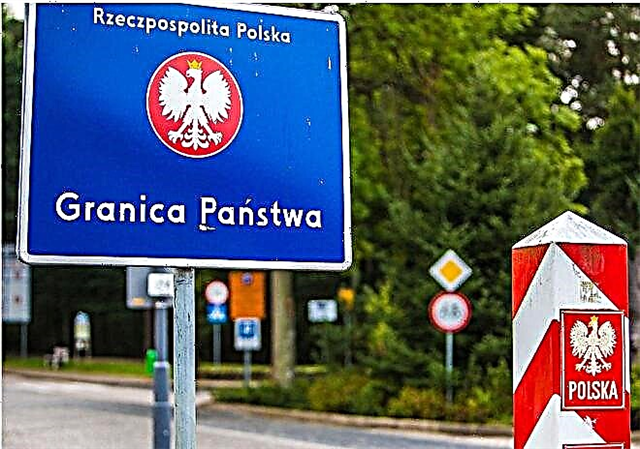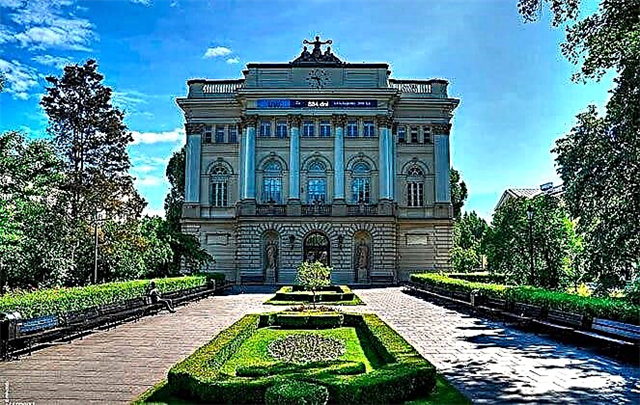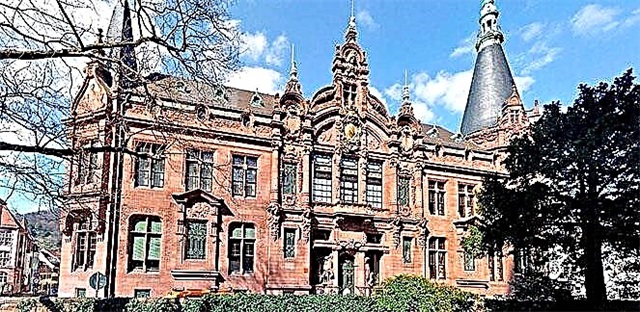The classical German higher education system attracts applicants from all over the world. The oldest universities in Europe, a demanding faculty, an intensive study load, access to unique sources of information, a fun campus life and the ability to achieve everything on your own - all this greatly influences the decision regarding the choice of an educational institution. For several centuries, the flagship of German science has been the University of Heidelberg, which positions itself as an internationally oriented research center. How to enter there, which faculties and how much does it cost to study - this is what is seriously interested in young people who seek to get an education abroad.

University history
The founding year of the oldest temple of science is 1386. It was in the 14th century that Elector Ruprecht the First decided to create a center for spiritual life in the country, which would train officials and church ministers on its territory, and attract foreign teachers for this. At the time of its creation, the university was the fourth in the list of educational institutions of the Holy Roman Empire (after Bologna, Prague and Vienna) and the first in Germany itself.
In different periods of its history, the oldest university has experienced many ups and downs, which could not but affect the interest in it on the part of professors and students, its scientific reputation and intellectual charisma.
In the 16th century, Heidelberg received the status of the cultural capital of Europe, and his university became a stronghold of Calvinism. This attracted a huge number of students and teachers here. In 1563, the famous Heidelberg Catechism was written here, which to this day remains a fundamental document for clergymen.
The years of the Thirty Years War (1618-1648) significantly influenced the educational process: the university was closed more than once, and its library moved to Rome several times. Until the 18th century, the teaching staff did not have a high scientific level: the dominance of the Jesuits and the transfer of professorships by inheritance was acutely felt.
In 1802, Heidelberg was transferred to Baden, the university underwent a reorganization and was reopened as a publicly funded educational institution. Changes also took place in the name of the educational institution: the name of the first Grand Duke Karl Friedrich of Baden was added to the name of its founder. From that moment on, this higher school became known as the University of Ruprecht and Karl.
In the 20th century, Ruprecht-Karls-Universität Heidelberg became the most liberal university in the world. This was manifested not only in the large number of students from other countries who studied in it, but also in the special atmosphere that reigned within its walls.
The period of two world wars became quite difficult for this educational institution. The university was the first among its German counterparts to recognize National Socialism. The result was massive repression of the professors, the destruction of objectionable literature, the propaganda of the ideas of fascism.
The end of World War II was a new stage for the university. Thanks to Karl Jaspers (German existentialist philosopher), a new university charter was adopted, which proclaimed the service to "the spirit of justice, philanthropy and truth." These principles are adhered to here today.
Key features of the educational institution
Currently, the Ruprecht and Karl University of Heidelberg, located in the federal state of Baden-Württemberg, provides educational opportunities for about 30 thousand students, which is about 25% of the entire population of Heidelberg. Approximately 15% of students are from other countries. As for the teaching staff, over 5 thousand scientists work here, 450 of whom have professorships.
The motto of the Heidelberg Graduate School is: "The knowledge book is always open."
The university gained immense fame thanks to several unprecedentedly strong faculties:
- medical - it has existed since the Middle Ages, retains the reputation of the strongest direction not only in the educational aspect, but also in research, without having its own clinic;
- humanities - philosophy, Germanic studies, archeology;
- natural disciplines - astrophysics, biology.
The following programs are available at the university:
- bachelor's degree;
- magistracy;
- State exam;
- postgraduate studies;
- training courses;
- extramural;
- student exchange programs.
Among the eminent graduates of the university are the Russian Empress Alexandra Fedorovna, the philosopher Georg Hegel, the ideologist of National Socialism Joseph Goebbels, ethnographer and traveler N.N. Miklouho-Maclay, chemist Dmitry Mendeleev, mathematician Sophia Kovalevskaya, German Chancellor Helmut Kohl.
Features of studying at the university and its territory
“The university buildings are located in different parts of Heidelberg, but given that the settlement is relatively small, students move around it on foot or by bicycle. At the same time, nothing prevents them from getting to their place of study by public transport, especially since travel in it is free for students.
Geographically, the university buildings are located as follows:
- Neuenheimer Feld - medical, natural and basic sports disciplines;
- the old part of the city - social sciences, humanities, administration and rectorate;
- Philosofenweg - physics, astronomy;
- old university building - museum;
- the territory of the former convent of the Augustinians - the famous library, which has 6 million volumes.
In addition, the university has 4 guest houses. However, students are rarely accommodated in them, so they usually have to choose their own accommodation on their own. At the same time, the educational institution undertakes to recommend realtors with a proven track record.
The academic year is divided into two semesters. Winter starts in October, and summer starts in April. Master's and bachelor's programs consist of modules, which in turn are divided into lectures, seminars, workshops. After completing a certain module, the student receives the so-called credits. Only after collecting a certain number of them, you can proceed to the next course.
Many students study at several faculties at once. This is possible due to the convenient schedule, which is formed at the very beginning of the semester. That is, the student immediately sees how much time he will have to devote to study, and how much will remain for preparation for classes, sports and leisure.
During the session, the student is allowed not to pass just one exam. For retake, one attempt is also provided. If you fail it, there will be no second chance - the student is threatened with expulsion. To successfully pass the session, you must regularly attend classes, speak at seminars, and complete practical tasks on time. The answer during the exam is just a small part of the overall score. The main thing is work throughout the year.
Which faculties can you enroll in
In 2021, the Heidelberg Graduate School offers applicants training in 12 faculties in four main areas:
1. Natural and computer sciences, mathematics:
- biosciences;
- chemistry and geochemistry;
- mathematics and computer science;
- physics and astronomy.
2. Theology and social sciences:
- philosophy;
- theology;
- modern languages.
3. Social disciplines, jurisprudence and economics:
- economic and social sciences;
- right;
- culturology and behavioristics.
4. Medicine:
- Faculty of Medicine in Heidelberg;
- Faculty of Medicine in Mannheim.
The university also has a number of scientific organizations:
- Center for the Study of Biochemistry and Neurology,
- Institute of Ecophysics,
- South Asian Institute,
- Research Center for Molecular Biology,
- Center for the Study of the Americas,
- Social innovation and investment,
- "Bioquant" - scientific biology,
- Technical informatics,
- Institute for Human Mental Health,
- Center for Health, Preventive and Social Medicine.
The university team maintains close contacts with other educational institutions located throughout the country. The partners of the university are the Center for Research in Oncology, the Institute for Computing in Astronomy, the Planck Institute, the Heidelberg Academy of Sciences.

How to proceed
To enter a German university, you will have to fulfill several requirements, which are due to the difference in the education system of Germany and the country from which the applicant came. In addition, you will have to prepare a certain package of documents, obtain a visa and resolve the issue of housing.
Preparation for admission
Recall that German students spend 13 years in school. At the same time, Russian graduates complete the stage of secondary education after completing the 11th grade. This means that it is not possible to immediately apply to a German university - first, you will have to compensate for the difference in the number of years of study.
For this purpose, special courses have been developed in Germany - Studienkolleg. They are enrolled in them on the basis of a regular school certificate. At the same time, it is not at all necessary to graduate from school with honors or a medal. The period of study takes about one year (on weekdays, 30 hours a week). There is no payment for the course participants, but there is a semester fee of approximately 150 euros.
Persons who have completed two university courses in their home state can be admitted to the Heidelberg University after completing the preparatory courses - Univorbereitung. The same awaits for bachelors who intend to obtain a master's degree at a German educational institution - the Univorbereitung-Masters training program has been developed for them.
Package of documents
The next stage is the preparation of the necessary papers. Particular attention should be paid to the motivation letter. It should explain why you want to study in Germany and what was the reason for choosing this particular university. It is better to think over the text of the letter in advance, since it can play a decisive role in making the decision about your enrollment.
In general, the set of documents will look like this:
- Motivation letter.
- Copy of your passport.
- Certificate of existing education.
- A certificate confirming the required level of language proficiency.
All papers drawn up in a foreign language must be translated into German and certified by a notary.
Visa application
As soon as you know that a place on the student's bench is provided for you, you can proceed with the application of a visa permit. However, first you will have to receive confirmation of your enrollment and an invitation from the University of Heidelberg.
To apply for a visa, you will need to collect a fairly extensive package of documents.
In addition, you will need confirmation that you have a blocked account in Germany with a certain amount of money, or a sponsor who is ready to pay for your training, or an account with a Russian bank and funds available on it.
To study at a university, you will be issued a long-term visa of the national sample (category D). In the future, on its basis, it will be possible to issue a temporary residence permit, which will allow you to stay in Germany for the entire period of study. A student visa is issued only at the German consulate. In this case, you will not be able to use the services of visa centers.
Language proficiency requirements
Most of the departments at the University of Heidelberg are taught in German. For this reason, you will have to confirm the required level of proficiency in the language of instruction. This can be done with one of the following certificates:
| In german language | In English language |
|---|---|
| TestDAF (Deitsch als Fremdsprache) | TOEFL |
| KDS (Kleines Deitches Sprachdiplom) | IELTS |
| ZOP (Goethe-Zertifikat C2) | CAE |
| GDS (Grosses Deutche Sprachdiplom) | TOIEC |
| DSD II (Deutches Sprachdiplom) | |
| DSH (Deutsche Sprachprüfung für den Hochschulzugang) | |
| Diploma confirming successful passing of exams in one of the Studienkollegs |
All Studienkolleg graduates take the German exam. Therefore, if you initially enroll in preparatory courses, you do not need to prepare any other documents. The level of language proficiency must be at least C2 for philological faculties and C1 for all others. For this reason, you should think about language courses long before enrolling.
Studying at the University
Having chosen the faculty / you for study, the students of the University of Heidelberg begin the educational process, which will end in 4 years. At the end of this period, they will receive a bachelor's degree and will be able to choose one of the following options:
- go to work in the received specialty;
- continue training further.
Studying in a bachelor's degree, depending on the specialty, lasts 3-4 years. Applicants are given the opportunity to study in one of the following specialties:
- English and German Philology;
- American Studies;
- archeology of the Near East;
- biochemistry;
- didactics;
- computer science;
- medicine;
- pedagogy;
- modern languages;
- economics and many others.
Master's studies and admission to graduate school

Master's degree in Heidelberg lasts 1-2 years, depending on the chosen specialty. You can gain knowledge at this stage both in German and in English. However, the choice of programs for English-speaking students is rather limited, and training is carried out on a paid basis.
Available specialties:
- American Studies;
- biomedical engineering;
- economy;
- health and society in South Asia;
- molecular biotechnology and some others.
To become a graduate student, most faculties will have to pass some exams. At the same time, applications are accepted only on condition that the graduation marks are above the average level, and the candidate himself has serious research experience. At the same time, postgraduate study in Heidelberg assumes both sequential training and non-sequential (with some deviation from the specialty already received).
The university provides an opportunity to obtain a doctoral degree in the following areas:
- Dr.Phil. (philosophy, modern languages, cultural studies, geography);
- Dr.rer.nat. (biosciences, mathematics and computer science, astronomy and physics, chemistry);
- Dr. jur. (jurisprudence);
- Dr.med., Dr.med.dent., Dr.sc.hum. (medicine);
- Dr.rer.pol. (economics and sociology);
- Dr. theol. (theology).
Confirmation of the diploma for foreign students is not required, however, you will have to translate the diploma and certify it with a notary. In addition, the graduate student will have to choose the type of study: individual or structured. A preliminary draft of the future thesis, available scientific articles and developments must be attached to the package of documents.
What the cost of studying
Studying at the University of Heidelberg is free of charge. However, students have to pay a fee of 152.30 euros each semester. This money is directed to:
- administrative expenses - 70.00 euros;
- payment of social contributions - 49.00 euros;
- payment to the student union fund - 7.5 euros;
- payment of a travel card for 1 semester - 25.80 euros.
Funds must be transferred to the account of the educational institution. The main expenses include paying for housing:
- a room in the suburbs - 262 euros;
- a room in the central part of the city - 369 euros;
- one-room apartment in a remote area - 304 euros;
- the same apartment in the center - 497 euros.
The cost is indicated per month.
Scholarship
If there is not enough money for training, you can use the help of the German state.This is a federal normative document that aims to support students in their endeavors to get an education. This document - the so-called BaföG - regulates the procedure for granting scholarships to applicants. However, they are not issued free of charge - at the end of the training, the student will have to return 50% of what he received as part of the program. But here, too, the authorities are meeting halfway, offering to extend the payment for 20 years without collecting interest.
To qualify for an education loan, an applicant must meet certain requirements:
- be no older than 30 years old (for bachelors) or 35 years old (for masters);
- have worked in the EU for at least 5 years (for non-EU residents) or one of his parents must have lived in the Federal Republic of Germany for at least 6 years, 3 of which must have been working.
The second option is to use the DAAD (Student Exchange Service) program. To get a scholarship in this organization, you will have to pass several tests, an interview, show good results in the disciplines already studied, write a letter of motivation.
For information on how to prepare for an interview and which organization to choose, read our article "Scholarships and Grants in Germany".
Exchange programs
The most successful way to become a student at the University of Heidelberg is to take part in a student exchange program. To do this, you need to choose a partner university, submit an application and wait for the decision of the commission. In Russia, the educational institution of interest to us cooperates only with the State University of St. Petersburg.
Another option is to enroll in one of the exchange programs that operate today at the international level:
- scholarships for German philologists;
- DAAD;
- Copernicus program.
But do not forget that you will have to go through a rather tough selection with high competition. If all goes well, the official website of the university will tell you what to do next for the winners of such programs.
Read about how to win a grant and go to study in Heidelberg in our material "Study in Germany by exchange".
Living standards in Heidelberg
Heidelberg has about 143 thousand inhabitants. At the same time, the main concern of local authorities is the personal safety of each citizen. This and a few other facts contributed to the fact that the city entered the top 100 cities with the best living conditions.
In general, the main costs will be as follows (in euros):
| 1-room apartment rental | 367 |
|---|---|
| Nutrition | 313 |
| Transport | 172 |
| Electricity and communication | 115 |
| clothing | 68 |
| Sports and recreation | 77 |
Buying your own home, located in the central part of the city, will cost 2,651 euros per square meter, and further from the center you can find an apartment at a price of 1,467 euros per square meter. m.
To better understand the prices and intricacies of the transaction, read our article "Real estate in Germany".
Do not forget that there must be an amount in your German bank account sufficient to live in the country. It should be borne in mind that the amount of this amount is revised annually for each federal state. This money should also be included in your travel budget.
Coracle will help you open a blocked account and obtain medical insurance for a student visa.
Other German universities
In addition to Heidelberg, Germany is famous for other higher educational institutions, the popularity of which is due to the stability of the country's economy and the developed education system in general. The most eminent German universities are:
- Technical University of Munich. It offers 132 courses in technical disciplines for study. There is no tuition fee. Each semester, students pay only a fixed fee, the amount of which does not exceed 300 euros.
- Ludwig-Maximilian University of Munich. The number of students is more than 50 thousand people, 15% of whom are citizens of other countries. The largest research centers of the country work at the university.
- University of Freiburg. Has earned popularity for his activities in the field of medicine and biology. There is a university clinic here, a large-scale research work is being carried out.
- University of Göttingen. It is the center of unique discoveries in the field of mathematics and physics. The Faculty of Psychology and Biology is included in the top 100 faculties in the world.
Higher educational institutions of Berlin, Cologne, Bonn are also very popular.
Conclusions
The University of Heidelberg is one of the oldest educational institutions, which ranks second in popularity among other universities in Germany and 41st in the world ranking. Since its inception, it has gone through a thorny path, gaining a reputation as the largest research center in the country. Today, the university has 12 faculties, a large number of various scientific centers, about 5 thousand teachers and scientists.
Foreigners at the university make up approximately 15% of the total number of students. In order to enter the university, they have to undergo preparatory courses, where you can enroll from the age of 16.
The university program involves training in bachelor's, master's, postgraduate, correspondence courses, there are numerous student exchange projects.











